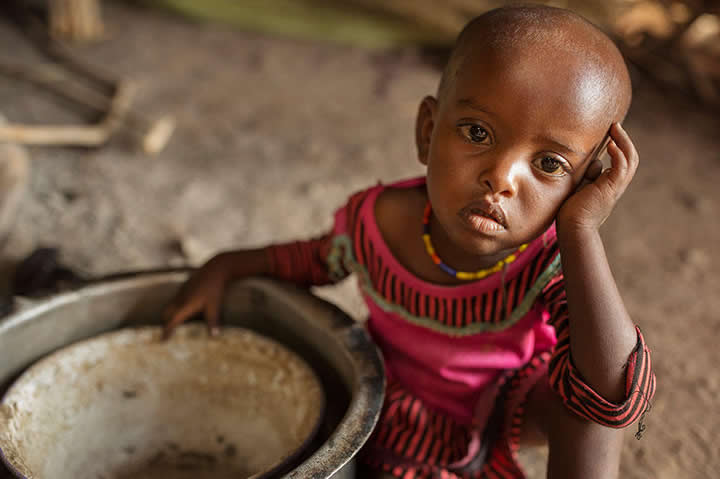The Global Hunger Report gives Kenya a score of 23.7, which lists it among 40 countries with a serious risk of hunger. The scores range between 0-100, with countries with lower figures having low levels of hunger. By that score, Kenya, and much of the world is behind the aspiration to eradicate hunger by 2030, said Kelvin Shingles, the Country Director of Welthungerhilfe (WHH), the organization that produces the annual reports. The report says some 1.5 million Kenyans are facing an acute food shortage that has been exacerbated by Covid-19, climate change and locust invasion.
Comment:
Even if Food security is part of President Uhuru Kenyatta’s Big Four agenda which includes affordable housing, universal healthcare and manufacturing, yet Kenya has often been in the list of food insecure countries. The number of Kenyans grappling with food insecurity remains a big challenge. Traumatizing images on our TV screens show children in many parts of the world such as Southern Sudan and Yemen with tiny bodies who cannot waste energy on tears; instead, they use every last calorie to keep their hearts pumping!
The real reason why people are starving Kenya and the world at large has little to do with rain or climate-change as asserted by media and global food and research institutions; rather, it has to do with corrupt regimes and politicians who care nothing other than their greedy demands.The world has vast resources including minerals, rivers, large tracts of fertile land, but due to corrupt economic capitalist policies, these resources are used only by corporate elites who benefit themselves while the masses end up with empty hands!
Since the destruction of Khilafah (Caliphate) 100 years ago by the then super power UK, the world has lacked a responsible government which is serious in eradicating famine. The Government that can heavily invest in the agricultural sector, buy fertilizers for farmers, provide subsidies for them money to prepare their farms and set up irrigation schemes that will guarantee food security thus eradicating famine. Unfortunately this is not done by capitalist abounded regimes.
It is under Khilafah when Khalifah Umar Bin Khattab at the time of the famine in Madinah wrote to the Walis asking them to send food-grains to Arabia. Camel loads of food grains and other necessities came from Syria, Iraq, and Egypt. Meals were cooked at the State level and all people who took refuge in Madinah were fed daily at the States expense. According to one account, as many as 40,000 people were fed every day. Umar (ra) refused to eat meat or butter during the period of famine. His stomach would rumble, but he said: “O stomach you may rumble as much as you like, but as long as the famine persists, I cannot allow you anything dainty”.
In 1845, the Great Irish Famine which led over a million deaths, Khaleefah Abdul-Majid I declared his intention to send 10,000 sterling to Irish farmers but Queen Victoria requested that the Sultan send only 1,000 sterling, because she had sent only 2,000 sterling herself. The Khalifah sent the 1,000 sterling but also secretly sent 3 ships full of food. The English courts tried to block the ships, but the food arrived in Drogheda Harbor and was left there by Ottoman Sailors.
These examples show the seriousness that the correct Islamic leadership gives to the problems faced by citizens; not resting till the situation was resolved, rather than passing the responsibility to others.
On the centenary of the Destruction of the Khilafah, we wish to remind Muslims across the globe to stand up and work for the re-establishment of Khilafah on the methodology of the Prophethood, the state that upon its return will recognize the needs of man, focus on the distribution of resources and solve all problems.
#أقيموا_الخلافة #خلافت_کو_قائم_کرو
#ReturnTheKhilafah #YenidenHilafet

